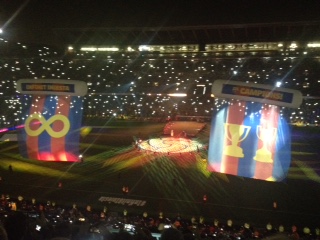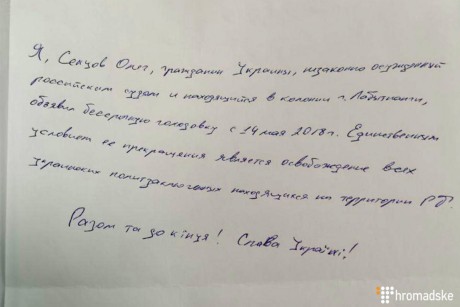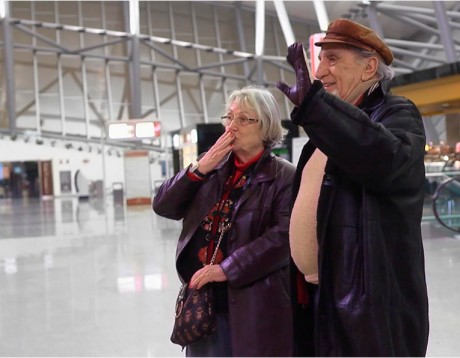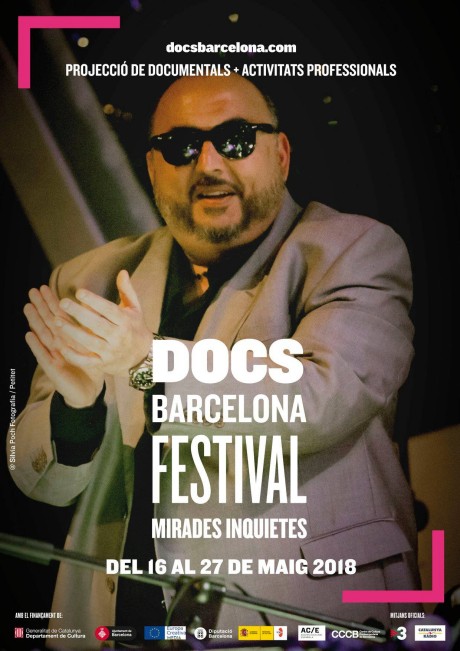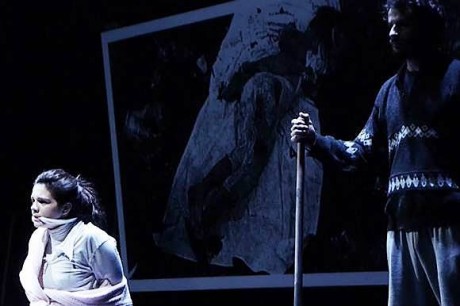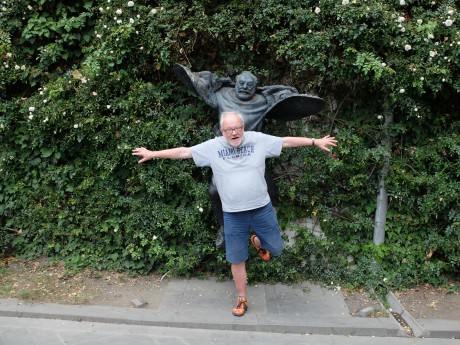DocsBarcelona 2018: Lovely film by Claudia Abend and Adriana Loeff, who in promotion of the film use this phrase as a logline, so precise it is: What happens when Life lasts longer than Love?
Take a look at the photo, Aldo and Gabriella in the airport of Montevideo waving goodbye to their daughter Leila, who lives in another country – as do all their children. The old couple do not live together any longer, they separated after 48 years, spending a lot of their active time in Venezuela, where Aldo was working in the construction business, and where the family life was pure happiness as shown in the huge amount of great family film footage that are shown skillfully.
But the film starts in present time. Old people enter a theatre stage to sit in a
chair and talk about their lives. Aldo is one of them. He does not hide that he is fond of himself, “I’m very charming”, “I will be good for the film”, he has Italian roots, he often speaks in Italian, as does his wife Gabriella. They were a remarkable couple, she a beauty, he very handsome – but something went wrong, when Aldo reached his fifties. He started to meet other women and the marriage was not as glorious as it used to be, of course. Gabriella tells that story and why she decided that they should separate before “it became hatred”. And she says, and you sense the pain she must have had, that she does always remember the bad moments and not the happy ones.
The film makes its focus on the couple Aldo and Gabriella, the other old people play the important role as a kind of Greek choir. With impressive faces that reminds us that there is nothing wrong with talking faces.
And there he is, Aldo, the old man, who you in the beginning of the film take a distance to, he is just too much, but gradually you start to have great empathy for him, who is alone and who has his good moments, when he meets Gabriella, when the kids visit or when he invites her out to a restaurant, buys roses, hope for her appreciation. He reflects so fine on his situation, with humour and self-irony.
What he does appreciate is the visit of the two female filmmakers. There is a wonderful scene, where he asks them, when the film will be finished, the answer is “in one and a half year or two” – do you know the Italian neo-realistic film directors, he says, they finished their films in 3-4 years! He is disappointed that no-one cares about the sculptures that he does. He goes to the gym, he goes to a café, sits there with his computer, as he does at home, where he closes his eyes and listens to Beethoven. Dreaming about, remembering what was once in his loneliness.
The directors have found brilliant cinematic solutions to portray old age and love that was and is no longer. It is a film for all of us – with a message, nurture your relationship, keep Love alive write
… a man who is 70 with a 65 year old wife, we have been together for only 27 years!
Uruguay, 2017, 86 mins.
http://www.laflordelavida-film.com/
www.docsbarcelona.com



